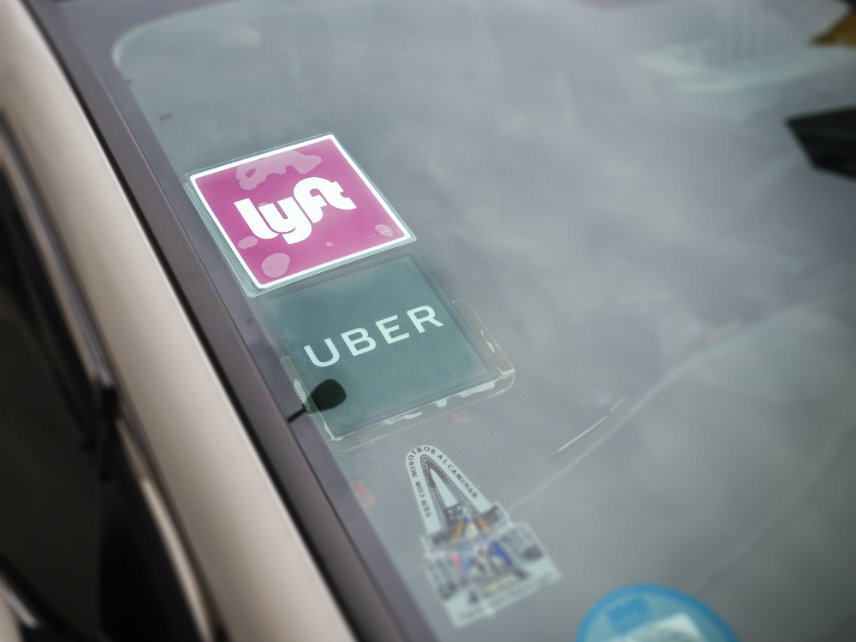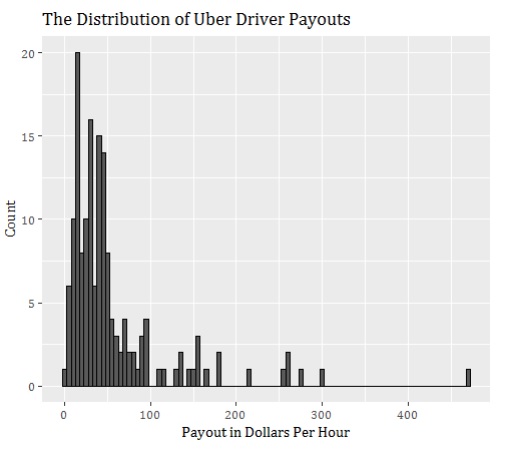Poverty Wages? Uber Drivers Make $37 Per Hour on Average, Survey Finds
How much do Uber drivers make, and why does that matter?

Uber drivers who say they are working long hours and making less than the minimum wage are a key part of the legal and political case against ride-sharing.
Barbara Ann Berwick, who sued Uber in 2015, claimed that she should be compensated and classified as a employee. In the course of driving for Uber from July to September 2014, working 60 to 80 hours a week, she told The New York Times, she earned about $11,000 before expenses and taxes. "If you work it out, if I didn't get compensated for expenses, I'd be working for less than minimum wage," she told the paper for a June 2015 story.
A California judge ruled that Uber owed Berwick more than $4,000 in back pay, but the decision to classify Berwick as an employee did not apply to other drivers.
More recently, protests against Uber (and fellow ride-sharing firm, Lyft) have focused attention on the earnings of drivers. "All we want is an increase in our wages so we can make a decent living," an Uber driver who participated in a large protest at Los Angeles International Airport in August told a local TV station.
These protests are meant to inspire political action, either against Uber and Lyft directly, by banning ride-sharing or limiting it (to the advantage of taxi companies and others), or in a more general way by getting lawmakers to lump independent contractors in with salaried and hourly employees.
A major problem, though, is that all the data is anecdotal. Do the complaints about making "poverty wages" come from average Uber drivers, or do they represent a small outlier group? That's the question Will Rinehart, director of Technology and Innovation Policy at the American Action Forum, a Washington D.C. center-right think tank, tries to answer in his new research paper, released Wednesday. The answer might surprise you.
After trawling through two websites where Uber and Lyft drivers congreagate to swap stories and share tips—specifically, the "UberDrivers" subreddit on Reddit.com, and the website UberDrivers.net—Rinehart collected a year's worth of information on how much specific drivers earned on the job. After taking Uber's cut out of the equation, the median hourly payout per hour came out to $37.98, his research shows.
That's not the whole story, of course. He found wide variance in how much drivers earned. One payout resulted in the driver pocketing just $2.23 per hour, while another driver made $472 per hour. Payouts over $100 are not common, he says, but they did occur, and payments cluster around the $37 mark.
"When I talk to drivers, they often cite flexibility as the reason for driving," Rinehart told Reason. "This evidence suggests that there is an important upside to this flexibly. Drivers can make a wide variation in pay, especially if they are watching and reacting to the changes in demand."
Because the data comes from websites where Uber drivers are congregating, it is skewed in that it comes from a select group of dedicated drivers, Rinehart admits. It's significantly higher than other estimates, like one from Glassdoor, a job search company that tracks salaries across occupations. Glassdoor estimates that Uber drivers make about $15 per hour, on average, based on anonomously sourced data. A Buzzfeed analysis of Uber data from 2015 found that they earn around $14 per hour in Houston and nearly $17 per hour in Denver, on average. Still, not exactly poverty wages.
Rinehart says his research suggests another important conclusion: that Uber drivers earn more when they are better at their jobs. That's important for the drivers, of course, because it means they can boost earnings through means that are entirely within their own control.
It also matters for the legal and political debate surrounding Uber drivers. While the Internal Revenue Service, the Department of Labor, and various state and local agenices use different classifications for employee or independent contractor, drivers have one thing in common.
"Drivers have control over their work, and can be fairly categorized as independent contractors as a result," says Rinehart.



Show Comments (66)